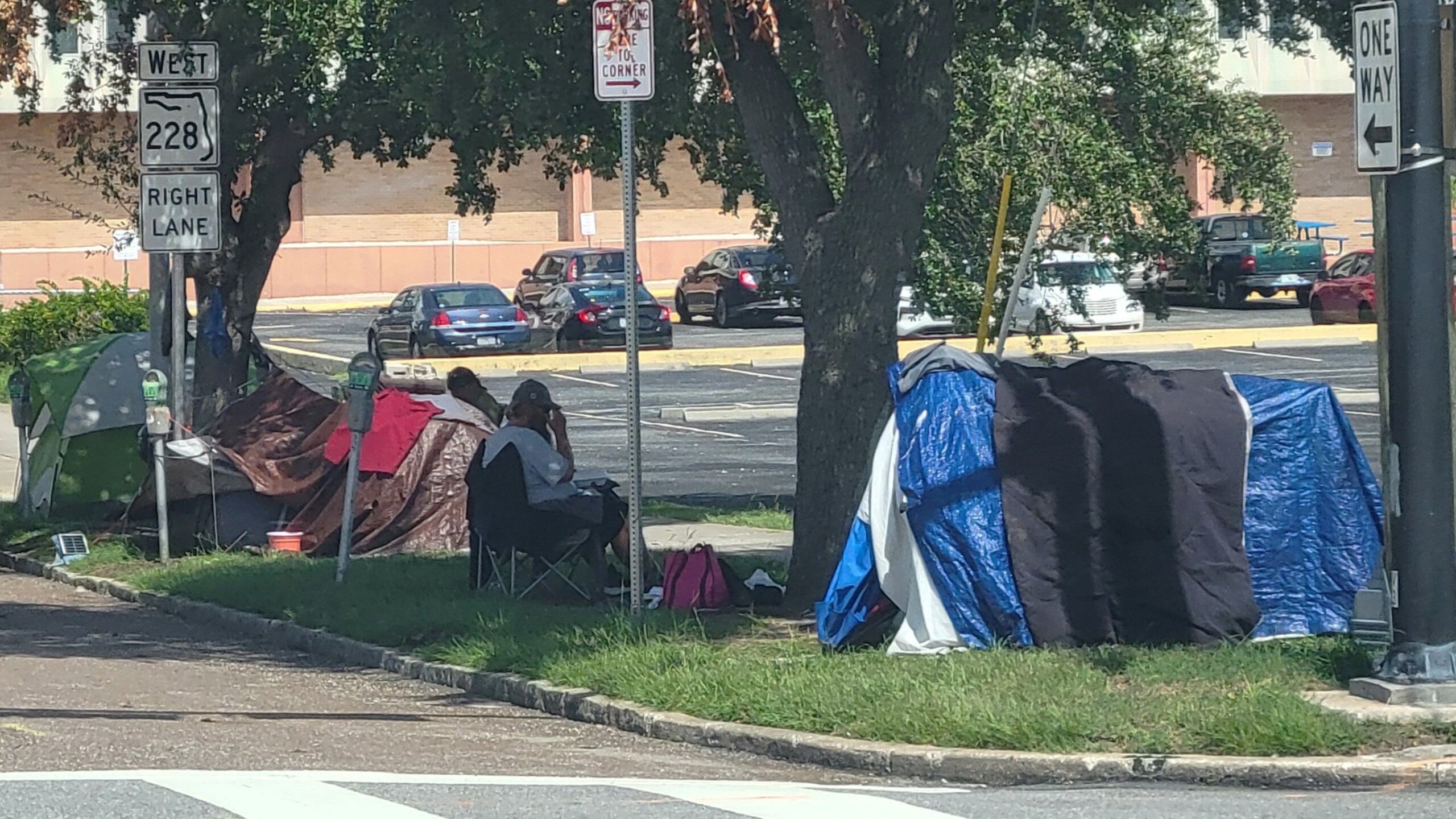Jacksonville is taking steps Tuesday to comply with a new Florida law that bars local governments from allowing homeless people to sleep or camp in public.
HB 1365 is one of 34 new laws that kick in Oct. 1. Mayor Donna Deegan said the city is “ready with a plan” to work with shelters and others.
The effort will include a seven-person team from the Jacksonville Fire and Rescue Department that will help homeless people access mental health and substance abuse programs.
The work is just a start, Deegan said Monday.
Jacksonville City Council last week approved $2.5 million to address the homeless situation, but it was much less than a proposed $10 million plan originally envisioned.
“We need more money,” Deegan said. “There’s no question that we do. We have a starting point and we are grateful that JFRD has stepped up — an elegant solution to the teams that we need to make contact with these folks. It is work that they do all the time, and I am grateful to Chief (Keith) Powers and the folks at JFRD for stepping up. We need to fund it more robustly.”
Reducing homeless numbers
Powers said he hopes the number of homeless will decline as firefighters direct them to shelters.
“Then we will go from a reactive phase and start getting proactive,” he said. “If they go to the hospital or chose the jail route, we can work with them in jail and get them into shelter space.”
The number of unsheltered people in Jacksonville is estimated at 566, although city officials say the number is probably higher. That count is 43% higher than 2023, according to Changing Homelessness, a nonprofit organization that supports efforts to end homelessness in Duval, Clay and Nassau counties.
The new Florida law bans anyone from sleeping or camping at places such as public buildings and in public rights of way without a permit. It allows local governments to designate property for sleeping or camping if it meets certain standards.
The sites can be used for only a year and not harm values of nearby properties or safety.
Another part of the measure will allow residents and business owners to file lawsuits against local governments that allow sleeping or camping on public property. That part of the law will take effect Jan. 1.
Seeking more money
In January, Jacksonville officials unveiled a 12-point plan they hoped would address the state’s new ban, a five-year program worked on by a Homelessness Work Group that included city officials, homeless advocates and shelter managers. It aimed to make the number of people who become homeless equal to those who find permanent housing, what Deegan has called “functional zero.”
City Council scaled back that plan during city budget hearings.
Powers said the fire department team ultimately will work 24 hours a day.
“They are working with these homeless folks, trying to give them an opportunity to get into a shelter space and get a roof over their head,” Powers said. “Then we start working on what the underlying cause is of them being homeless, whether it is just down on their luck, or a mental health issue or addiction. … If you don’t do that, they just end up on the street again.”
Powers said his department is also seeking federal grants to help the program.
Deegan said that the fire department team will “get us started,” but that her original plan would have cost just over $13 million for the first year alone to accomplish all the work city leaders and homeless advocates had hoped to achieve.
“But as we go, we are going to need to add more to that, and I believe everybody understands it and I believe we will,” she said. “It has to be a multiprong solution. We have to have wrap-around services for these folks. That’s part of the state law, by the way. It’s not just that you have to get these folks off the street. You have to create that safety net.”
That includes ongoing plans for more housing, mental and drug counseling services and “anything people need as they are facing homelessness to get them back to mainstream,” Deegan said.







